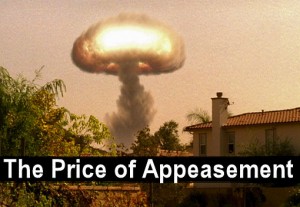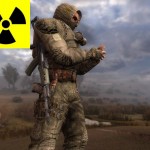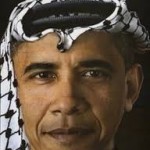Six powers have signed the treaty with Iran in Geneva; with Obama at the head, the golden dream of Western liberals has come true. Iran has gained time, an access to part of its frozen assets and a stable channel of influence on the West. Western diplomats and politicians got the chance of telling the people- again- the famous phrase, “I’ve brought you peace,” demonstrating that they are working for the good of the world 24/7/365.
Russia and China have again demonstrated that they are playing an important role. The only black sheep is Israel who stubbornly refuses to join the chorus of those who praise Ayatollah Khomeini, President Roukhani, President Obama, President Putin and all the other Presidents and Prime Ministers, together with their relevant teams. And Saudi Arabia is also spoiling the celebration- but it’s a small detail.
Has Iran really ceded something important in exchange for cancelling a huge part of its sanctions? No. Will Iran be able to restore even that part it ceded in no time? Yes, of course. Nobody doubts it.
As it turns out, the question that worries politicians most is not if Iran will or will not get an A-bomb, but who played the main role in negotiations. The Russian Foreign Minister insists that all the ideas were generated by Mr. Putin. The US’s John Kerry praises the political genius of Mr. Obama and hints on some secret talks that the USA had been holding with Iran for quite a long time (without informing their closest allies in the region, Israel and Saudi Arabia, but it’s, again, a small detail). And who cares that Netanyahu talks about the “historical mistake” and about the evident fact that Iran kept all its nuclear facilities and can calmly go on building the A-Bomb.
Obama avoided the war he did not wish and did not need. In doing so, he brushed aside all the obligations and promises made by the previous US Administrations and by him personally concerning the security of America’s closest allies: Saudi Arabia and Israel. The political prestige of the United States has fallen below the level of the Challenger Deep. But after all, the United States of America has kept its best ally that is always true: the United States of America. Others should have been smarter.
Europe avoided- not the war, as Europe would not start a war with Iran no matter what inspired-by-Saudi-money France could say- but Europe escaped responsibility, accurately placing it on the USA and Russia.
China made its position stronger among those who decide- without exposing itself to any danger, as the Iranian nuclear program, peaceful or not, does not pose any threat to China, and China will go on trading with Iran as it was trading before, with international sanctions- or without them. This fact, by the way, does not affect the Chinese fruitful cooperation with Saudi Arabia.
Russia stands apart. On the one hand, Russia is the only country among all the negotiating powers that has a border with Iran. And this border is not the calmest on Earth. Iran demands to recognize its rights on 20% of the Caspian Sea, and judging by the inflexibility of both parts, this territorial dispute will drag on for the next two or three centuries. On the other hand, Iran has not destabilized the situation in the Russian North Caucasus, although it could easily do it. And this demonstrates that Iran is very interested in keeping any conflict with Russia low-profile in search of Russian technological help and political support.

In 1938-1939, appeasing Nazi Germany, the Western politicians rang bells about how they stopped the war. “Peace for our time” sounded great and attracted voters- but it could not stop Nazis, and it did not prevent WW2, with 50 million lives being the cost of the appeasement. Is history now repeating itself?
“When you do a risk-benefit analysis, the possibility that this will actually result in ending Iran’s nuclear weapons program is probably in the 
While diplomats argue about whose ideas made the base of the treaty with Iran, the experts say this “diplomatic triumph” is a nail in the coffin for the Non-Proliferation regime. In a year Iran will have a bomb. Saudi Arabia will immediately get its bomb using Pakistani technologies. Israel will start increasing its nuclear potential. Obama’s deal actually increases the chances of war instead of decreasing them. It increases the chances of Iran developing nuclear weapons. It increases the chances of an Israeli attack. It increases the chances that Saudi Arabia will have to try to obtain its own nuclear weapon. It increases chances of a general arms race- and finally, a nuclear war.
By: Y.K. Cherson









